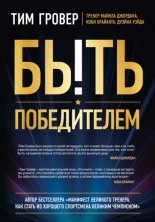21-й – 30-й тесты. Английский язык. ЕГЭ, 2023. На базе материалов ФИПИ Евтишенков Игорь

С. In 1700, Henri Misson, a Frenchman visiting Britain, asked villagers why they had horseshoes nailed above their doors. They said it was to keep witches away. Horseshoes are made of iron and the strength of the iron was thought to protect from evil. Still today they are thought to bring good luck and many brides carry silver ones at their weddings. The position of the horseshoe is very important. It must point upwards like a cup so that the luck cannot fall out.
D. Women generally live about six years longer than men. Evidence suggests that boys are the weaker sex at birth, which means that more die in infancy. Also, women do not have as much heart disease as men. In terms of lifestyle, men smoke more than women and thus more die of smoking-related diseases. Also, they generally have more dangerous occupations, such as building work.
E. Scientists say that rats can help look for earthquake survivors buried in the ruined buildings. Dogs are already used to search for people, but rats can be even more useful. Like dogs they’ve got a great sense of smell, but scientists still need to train rats to sniff out people and to carry special radio transmitters to let them know when the survivor is found. Rats may also be trained to find bombs or explosives.
F. Dinosaurs roared for about 150 million years before they disappeared. We humans have only been around for about 2 million years. But cockroaches are 350 million years old and still going strong! Cockroaches can survive in extreme conditions. They can be frozen, then thawed, and walk away as if nothing had happened. They can go for incredibly long time without eating anything. And that is the secret of their success!
G. Founded in 1980, BASE jumping grew out of skydiving. But BASE jumping is much more dangerous than skydiving that is why it is banned in many countries. Legal jumps now happen on specific days and from approved structures. However, like other extreme sports, it’s the risk of disaster that makes BASE jumping so exciting.
***
11. Прочитайте текст и заполните пропуски A—F частями предложений, обозначенными цифрами 1—7. Одна из частей в списке 1—7 лишняя. Занесите цифры, обозначающие соответствующие части предложений, в таблицу.
Clothing
Clothing is a distinctly human artefact. Even more than the use of tools, it distinguishes humans from the other creatures on this planet. The basic purpose of clothing was originally practical. By putting on a skin, humans were able to move into regions ___ (A). An example of this use of clothing can be seen among the Eskimos, and other people who live with extreme cold. However, clothing was not only used for protection, but has also been a means of displaying one’s status. Thus, clothing also developed in countries ___ (B).
Clothing tells us many things about the wearer. It can be used to indicate ___ (C). The most extreme example of this type of clothing is a uniform.
A dress code is very important in business. It is a rare businessman ___ (D).
Most politicians also try to be neat and well-dressed.
The significance of what we wear is becoming more important ___ (E). There have been cases on holiday islands where the locals have been outraged by foreign visitors – especially female visitors – who wear far less than the minimum that the locals consider decent. Actually, the signals given by clothing as worn by men and women have decreased ___ (F). For example, today most women are very comfortable wearing jeans. Yet the sight of a man in a dress would raise eyebrows in most western cultures.
Clothing is very important in our society. So it is highly unlikely that there will be no use for clothing in the future, unless humanity evolves into a completely new species.
1. where there is no real practical need for it
2. because more people started to follow fashion
3. who does not feel the need to wear a suit and tie
4. where they otherwise would have been unable to cope with the climate
5. because many women now wear what were once «men’s’ clothes
6. as the cultures of the world mix
7. whether a person is a member of a particular group or organisation
***
Прочитайте текст и выполните задания 12—18. В каждом задании запишите в поле ответа цифру 1, 2, 3 или 4, соответствующую выбранному Вами варианту ответа.
The Open Window
«My aunt will be down presently, Mr. Nuttel,» said a very self-possessed young lady of fifteen; «in the meantime you must try and put up with me.»
Framton Nuttel endeavoured to say the correct something which should duly flatter the niece of the moment without unduly discounting the aunt that was to come. Privately he doubted more than ever whether these formal visits on a succession of total strangers would do much towards helping the nerve cure which he was supposed to be undergoing.
«I know how it will be,» his sister had said when he was preparing to migrate to this rural retreat; «you will bury yourself down there and not speak to a living soul, and your nerves will be worse than ever from moping. I shall just give you letters of introduction to all the people I know there. Some of them, as far as I can remember, were quite nice.»
Framton wondered whether Mrs. Sappleton, the lady to whom he was presenting one of the letters of introduction came into the nice division.
«Do you know many of the people round here?» asked the niece, when she judged that they had had sufficient silent communion.
«Hardly a soul,» said Framton. «My sister was staying here, at the rectory, you know, some four years ago, and she gave me letters of introduction to some of the people here.»
He made the last statement in a tone of distinct regret.
«Then you know practically nothing about my aunt?» pursued the self-possessed young lady.
«Only her name and address,» admitted the caller. He was wondering whether Mrs. Sappleton was in the married or widowed state. An indefinable something about the room seemed to suggest masculine habitation.
«Her great tragedy happened just three years ago; that would be since your sister’s time. You may wonder why we keep that window wide open on an October afternoon,» said the niece, indicating a large French window that opened on to a lawn.
«It is quite warm for the time of the year,» said Framton; «but has that window got anything to do with the tragedy?»
«Out through that window, three years ago to a day, her husband and her two young brothers went off for their day’s shooting. They never came back. In crossing the moor to their favourite snipe-shooting ground they were all three engulfed in a treacherous piece of bog. It had been that dreadful wet summer, you know, and places that were safe in other years gave way suddenly without warning. Their bodies were never recovered. That was the dreadful part of it.»
Here the child’s voice lost its self-possessed note and became falteringly human. «Poor aunt always thinks that they will come back someday, they and the little brown spaniel that was lost with them, and walk in at that window just as they used to do. That is why the window is kept open every evening till it is quite dusk. Poor dear aunt, she has often told me how they went out, her husband with his white waterproof coat over his arm, and Ronnie, her youngest brother, singing «Bertie, why do you bound?» as he always did to tease her, because she said it got on her nerves. Do you know, sometimes on still, quiet evenings like this, I almost get a creepy feeling that they will all walk in through that window’
She broke off with a little shudder. It was a relief to Framton when the aunt bustled into the room with a whirl of apologies for being late in making her appearance.
«I hope Vera has been amusing you?» she said.
«She has been very interesting,» said Framton.
«I hope you don’t mind the open window,» said Mrs. Sappleton briskly; «my husband and brothers will be home directly from shooting, and they always come in this way. They’ve been out for snipe in the marshes today, so they’ll make a fine mess over my poor carpets.»
She rattled on cheerfully about the shooting and the scarcity of birds, and the prospects for duck in the winter. To Framton it was all purely horrible. It was certainly an unfortunate coincidence that he should have paid his visit on this tragic anniversary.
«The doctors agree in ordering me complete rest, an absence of mental excitement, and avoidance of anything in the nature of violent physical exercise,» announced Framton, who laboured under the tolerably widespread delusion that total strangers and chance acquaintances are hungry for the least detail of one’s ailments and infirmities, their cause and cure. «On the matter of diet they are not so much in agreement,» he continued.
«No?» said Mrs. Sappleton, in a voice which only replaced a yawn at the last moment. Then she suddenly brightened into alert attention but not to what Framton was saying.
«Here they are at last!» she cried. «Just in time for tea, and don’t they look as if they were muddy up to the eyes?!»
Framton shivered slightly and turned towards the niece with a look intended to convey sympathetic comprehension. The child was staring out through the open window with a dazed horror in her eyes. In a chill shock of nameless fear Framton swung round in his seat and looked in the same direction.
In the deepening twilight three figures were walking across the lawn towards the window, they all carried guns under their arms, and one of them was additionally burdened with a white coat hung over his shoulders. A tired brown spaniel kept close at their heels. Noiselessly they neared the house, and then a hoarse young voice chanted out of the dusk: «I said, Bertie, why do you bound?»
Framton grabbed wildly at his stick and hat; the hall door, the gravel drive, and the front gate were dimly noted stages in his headlong retreat.
«Here we are, my dear,» said the bearer of the white mackintosh, coming in through the window, «fairly muddy, but most of it is dry. Who was that man who bolted out as we came up?»
«A most extraordinary man, a Mr. Nuttel,» said Mrs. Sappleton; «could only talk about his illnesses, and dashed off without a word of goodbye or apology when you arrived. One would think he had seen a ghost.»
«I expect it was the spaniel,» said the niece calmly; «he told me he had a horror of dogs. He was once hunted into a cemetery somewhere on the banks of the Ganges by a pack of pariah dogs, and had to spend the night in a newly dug grave with the creatures snarling and grinning and foaming just above him. Enough to make anyone lose their nerve.»
Romance at short notice was her speciality.
12. Framton Nuttel went to stay in the countryside…
1) to get acquainted with a young girl.
2) to enjoy being alone.
3) to improve his health.
4) to find a job.
Ответ:
13. Vera told Framton that Mrs. Sappleton’s husband and two brothers…
1) had been killed while shooting.
2) had died in the swamp.
3) had drowned in the pond.
4) had gone for a walk and disappeared.
Ответ:
14. The French window was open because…
1) it was stuffy in the room.
2) Mrs. Sappleton usually kept her windows open.
3) it was used as a door.
4) Mrs. Sappleton was still waiting for the missing people.
Ответ:
15. When Mrs. Sappleton came into the room, she looked…
1) quite happy.
2) angry.
3) very sad.
4) worried.
Ответ:
16. The doctors ordered Framton…
1) a special diet.
2) mental excitement.
3) physical exercise.
4) total relaxation.
Ответ:
17. Framton dashed off without saying goodbye because he…
1) was in a hurry.
2) had seen a ghost.
3) thought he had seen a ghost.
4) had a horror of dogs.
Ответ:
18. Vera was…
1) in her twenties.
2) quite amusing.
3) good at making up exciting stories.
4) aware of Framton’s adventures.
Ответ:
По окончании выполнения заданий 10—18 не забудьте перенести свои ответы в БЛАНК ОТВЕТОВ №1! Запишите ответ справа от номера соответствующего задания, начиная с первой клеточки. При переносе ответов на задания 10 и 11 цифры записываются без пробелов, запятых и других дополнительных символов. Каждую цифру пишите в отдельной клеточке в соответствии с приведёнными в бланке образцами.
Раздел 3. Грамматика и лексика
Прочитайте приведённые ниже тексты. Преобразуйте, если необходимо, слова, напечатанные заглавными буквами в конце строк, обозначенных номерами 19—24, так, чтобы они грамматически соответствовали содержанию текстов. Заполните пропуски полученными словами. Каждый пропуск соответствует отдельному заданию из группы 19—24.
Swimming Pools
19. The first heated swimming pool ……………… by Gaius Maecenas of Rome in the first century BС.
CONSTRUCT
20. Swimming pools became popular in Britain in the beginning of the 19th century. By 1837, London authorities ……………… six indoor pools with diving boards.
BUILD
21. The ……………… surviving swimming club in the world is the Arlington Baths Club in Glasgow. It is still an active club and continues to own its original Victorian building with a large pool.
OLD
22. After the start of modem Olympic Games in 1896, the popularity of swimming pools ……………… off. Nowadays, there are lots of different swimming pools, both public and private.
TAKE
23. Most ……………… enjoy swimming and swimming pools with their wave-making machines, water slides and tropical vegetation are something unique for them.
CHILD
24. If they could, kids ……………… to spend their entire summer in the swimming pool.
CHOOSE
Прочитайте приведённый ниже текст. Образуйте от слов, напечатанных заглавными буквами в конце строк, обозначенных номерами 25—29, однокоренные слова так, чтобы они грамматически и лексически соответствовали содержанию текста. Заполните пропуски полученными словами. Каждый пропуск соответствует отдельному заданию из группы 25—29.
Waste Management
25. Waste affects our environment – everything that surrounds us including the air, water, land, plants, and man-made things. We need a healthy environment for our own health and ……………………….
HAPPY
26. The waste we create has to be ……………………… controlled to be sure that it does not harm our environment and our health.
CAREFUL
27. So ……………………… waste management is very important.
EFFECT
28. Waste reduction and recycling have a wide range of environmental benefits and promote public awareness and personal ……………………… for the waste we create.
RESPONSIBLE
29. The best place to start making a ……………………… is our home. Learn how you can reduce, reuse, and recycle materials to decrease household waste.
DIFFER
Прочитайте текст с пропусками, обозначенными номерами 30—36. Эти номера соответствуют заданиям 30—36, в которых представлены возможные варианты ответов. Запишите в поле ответа цифру 1, 2, 3 или 4, соответствующую выбранному Вами варианту ответа.
Globalization and Communication Growth
The 21st century has 30 …… in a new era in man’s ongoing quest for a better life and a better world. For the first time in history, we can now claim to live in «One World.» Globalization has removed many of the gaps that have existed between and among nations. While the physical divide is still present, the 31 …… of the Information Highway on how we communicate and live in the present day is simply staggering. Rapid improvements in information technology have allowed us to exchange information and communicate almost everywhere, anywhere, and anytime.
Globalization, as a general term, is best understood as the spread of ideas about the environment, democracy, human rights, and less complicated issues like fashion and fads. Global exchange is now taking place as the market of ideas, culture, and beliefs expand through the use of technology. The nature of business and how it is done has also improved by 32 …… and bounds because of globalization.
An example of the remarkable effects of globalization is the invention of the telephone and the television. Television has enabled young people and adults to have the ability to share cultural and ethnic experiences with others. Telephones have also greatly improved communication. Gone are the weeks and even months of waiting for a letter. Anybody can talk to anyone who has another phone 33 …… of distance or location on the planet. With the aid of satellites, 3rd generation phones allow us to make a phone call, send a video, or even receive an e-mail. These 34 …… in communication have revolutionized business, commerce, and even the personal lives and relationships of millions of people.
Because of the electronic media, vast amounts of important information can reach any parts of the globe in 35 …… time. Business establishments, whether big or small, are using the Internet in many ways to build or expand their company’s growth. With the ever-improving technology come new markets, high 36 …… for products, and also greater competition. Making investments in information and communication technology is now a must for any business enterprise.
По окончании выполнения заданий 19—36 не забудьте перенести свои ответы в БЛАНК ОТВЕТОВ №1! Запишите ответ справа от номера соответствующего задания, начиная с первой клеточки. При переносе ответов на задания 19—29 буквы записываются без пробелов, запятых и других дополнительных символов. Каждую букву или цифру пишите в отдельной клеточке в соответствии с приведёнными в бланке образцами.
!Проверьте, чтобы каждый ответ был записан рядом с номером соответствующего задания
Раздел 4. Письменная речь
Для ответов на задания 37 и 38 используйте бланк ответов №2. Черновые пометки можно делать прямо на листе с заданиями или использовать отдельный черновик. При выполнении заданий 37 и 38 особое внимание обратите на то, что Ваши ответы будут оцениваться только по записям, сделанным в БЛАНКЕ ОТВЕТОВ №2. Никакие записи черновика не будут учитываться экспертом. Обратите внимание также на необходимость соблюдения указанного объёма текста. Тексты недостаточного объёма, а также часть текста, превышающая требуемый объём, не оцениваются. Укажите номер задания 37 в БЛАНКЕ ОТВЕТОВ №2 и напишите текст своего ответного электронного письма зарубежному другу по переписке.
37. You have received an email message from your English-speaking pen-friend Maurette:
From: Maurette @mail.uk
Subject: Job
…My Dad has got a new job. What do your parents do? What kind of job would you like to have and why? What kind of training do you need for it?
I saw a wonderful film last week…
Write an email to Maurette.
In your message:
– answer his questions;
– ask 3 questions about the film.
Write 100—140 words.
Remember the rules of email writing.
Выберите только ОДНО из двух предложенных заданий (38.1 или 38.2), укажите его номер в БЛАНКЕ ОТВЕТОВ №2 и выполните согласно данному плану. В ответе на задание 38 числительные пишите цифрами.
38.1 Imagine that you are doing a project on why people learn Chinese in Zetland. You have found some data on the subject – he results of a survey (see the table below).
Comment on the survey data in the table and give your opinion on the subject of the project.
The survey question:
Why are you learning Chinese?
Write 200—250 words.
Use the following plan:
– make an opening statement on the subject of the project;
– select and report 2—3 facts;
– make 1—2 comparisons where relevant and give your comments;
– outline a problem that can arise with learning Chinese and suggest a way of solving it;
– conclude by giving and explaining your opinion on the importance of learning Chinese.
38.2 Imagine that you are doing a project on why soft drinks are getting popular with teens in Zetland. You have found some data on the subject – the results оf a survey (see the pie chart below).
Comment on the survey data in the pie chart and give your opinion on the subject of the project.
The survey question:
Why are you drinking soft drinks?
Write 200—250 words.
Use the following plan:
– make an opening statement on the subject of the project;
– select and report 2—3 facts;
– make 1—2 comparisons where relevant and give your comments;
– outline a problem that one can face when drinking soft drinks and suggest a way of solving it;
– conclude by giving and explaining your opinion on the importance of soft drinks for teens.
!Проверьте, чтобы каждый ответ был записан рядом с номером соответствующего задания.
Test 23. Устная часть
Task 1
Imagine that you are preparing a project with your friend. You have found some interesting material for the presentation and you want to read this text to your friend. You have 1.5 minutes to read the text silently, then be ready to read it out aloud. You will not have more than 1.5 minutes to read it.
The mass media play an important part in our lives. Newspapers, radio and especially TV inform I us of what is going on in this world. It is true that the world today is full of dramatic events and most news seems to be bad news. But people aren’t interested just in ordinary events. That is why there are so many programmes and articles about natural disasters, plane crashes, wars, murders and robberies. The main source of news for millions of people is television. Still, many people prefer the radio. It’s good to listen to in the car or when you do something about the house. Newspapers don’t react to events as quickly as TV, but they usually provide us with extra detail. The Internet has recently become another important source of information. Its main advantage is that news appears on the screen as soon as things happen in real life and you don’t have to wait for news time on TV.
Task 2
Study the advertisement.
You are considering buying a TV and you’d like to get more information. In 1.5 minutes you are to ask four direct questions to find out the following:
1) if they take credit cards
2) screen size
3) if the TV has Wi-Fi access
4) advantages of the device over the others
You have 20 seconds to ask each question.
Task 3
You are going to give an interview. You have to answer five questions.
Give full answers to the questions (2—3 sentences).
Remember that you have 40 seconds to answer each question.
Typescript for Task 3
Interviewer: Hello everybody! It’s the Club «Athlete». Our guest today is a teenager from Russia, and we are going to discuss active sport exercises. We’d like to know our guest’s point of view on this issue. Please answer five questions. So, let’s get started.
Interviewer: What sports do you like watching on TV?
Student:_____________________________________________
Interviewer: Do you practise any sport? Explain why.
Student:_____________________________________________
Interviewer: What activities do you have at your PE lessons?
Student:_____________________________________________
Interviewer: What do you do to be fit?
Student:_____________________________________________
Interviewer: Why is it important for you to keep?
Student:_____________________________________________
Interviewer: Thank you very much for your interview.
Task 4
Imagine that you and your friend are doing a project «Pet Food».
You have found some photos to illustrate it, but for technical reasons you cannot send them now. Leave a voice message to your friend explaining your choice of the photos and sharing some ideas about the project.






